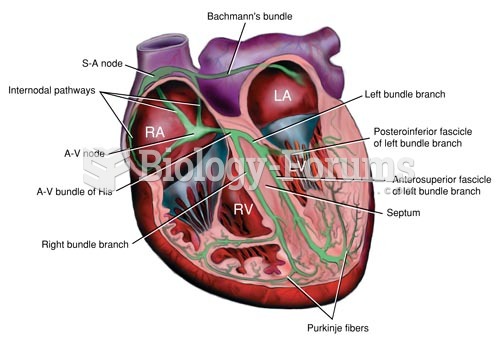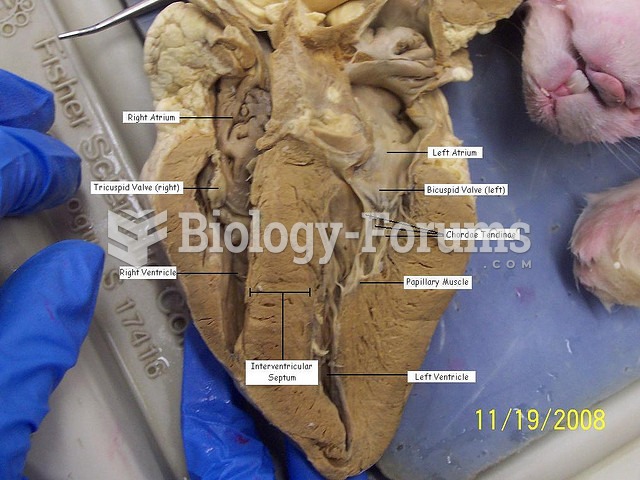|
|
|
IgA antibodies protect body surfaces exposed to outside foreign substances. IgG antibodies are found in all body fluids. IgM antibodies are the first type of antibody made in response to an infection. IgE antibody levels are often high in people with allergies. IgD antibodies are found in tissues lining the abdomen and chest.
In 1844, Charles Goodyear obtained the first patent for a rubber condom.
Women are 50% to 75% more likely than men to experience an adverse drug reaction.
Immunoglobulin injections may give short-term protection against, or reduce severity of certain diseases. They help people who have an inherited problem making their own antibodies, or those who are having certain types of cancer treatments.
Eat fiber! A diet high in fiber can help lower cholesterol levels by as much as 10%.







